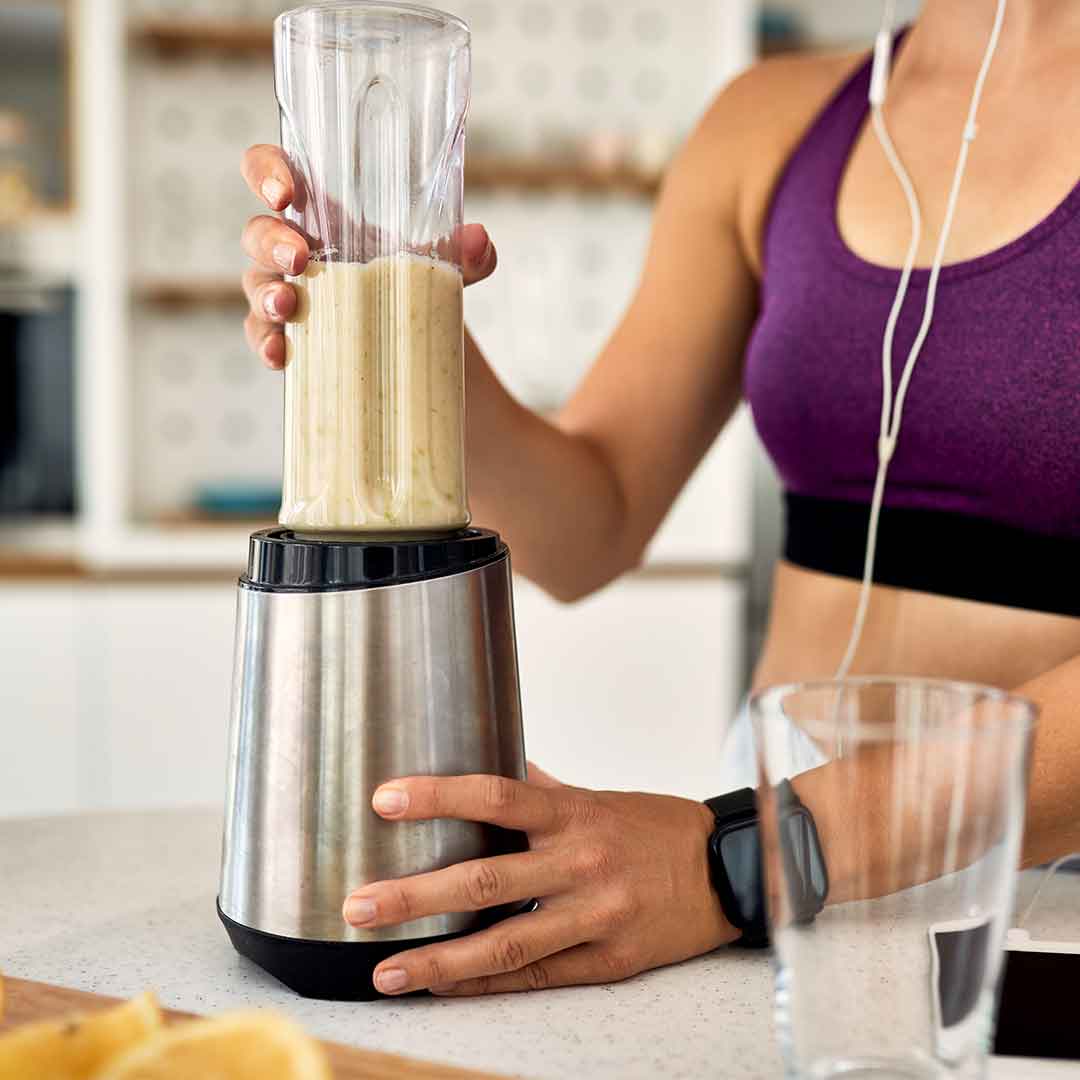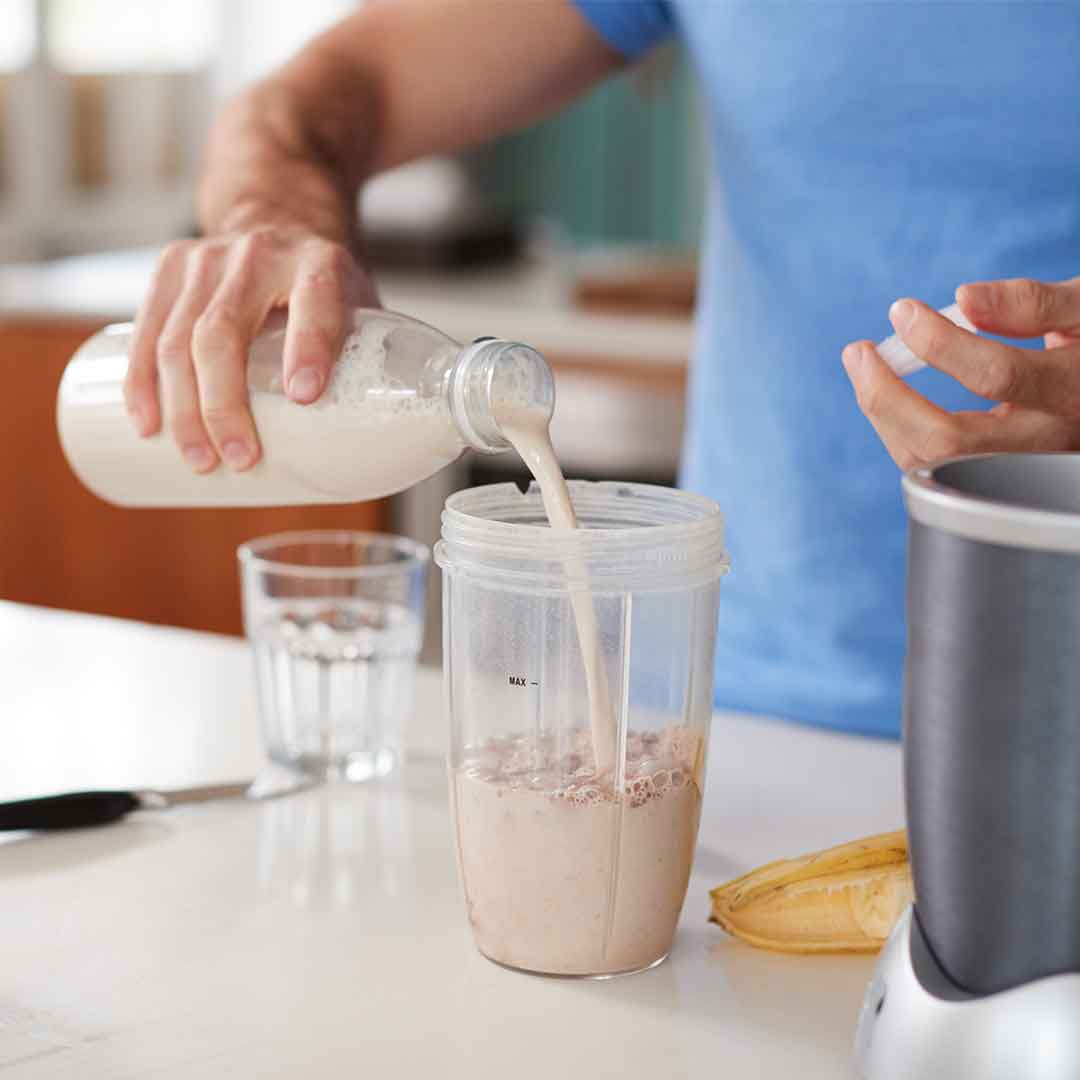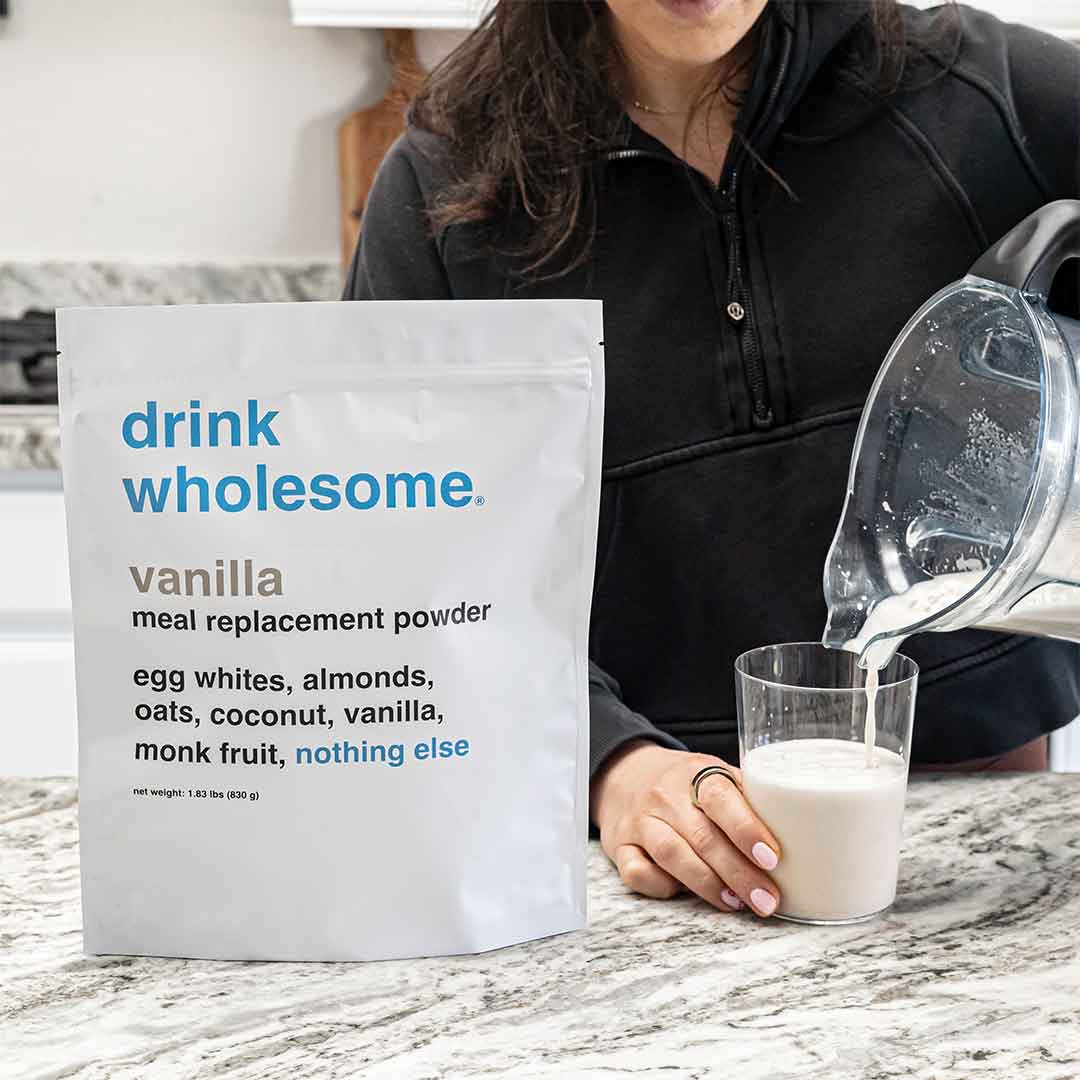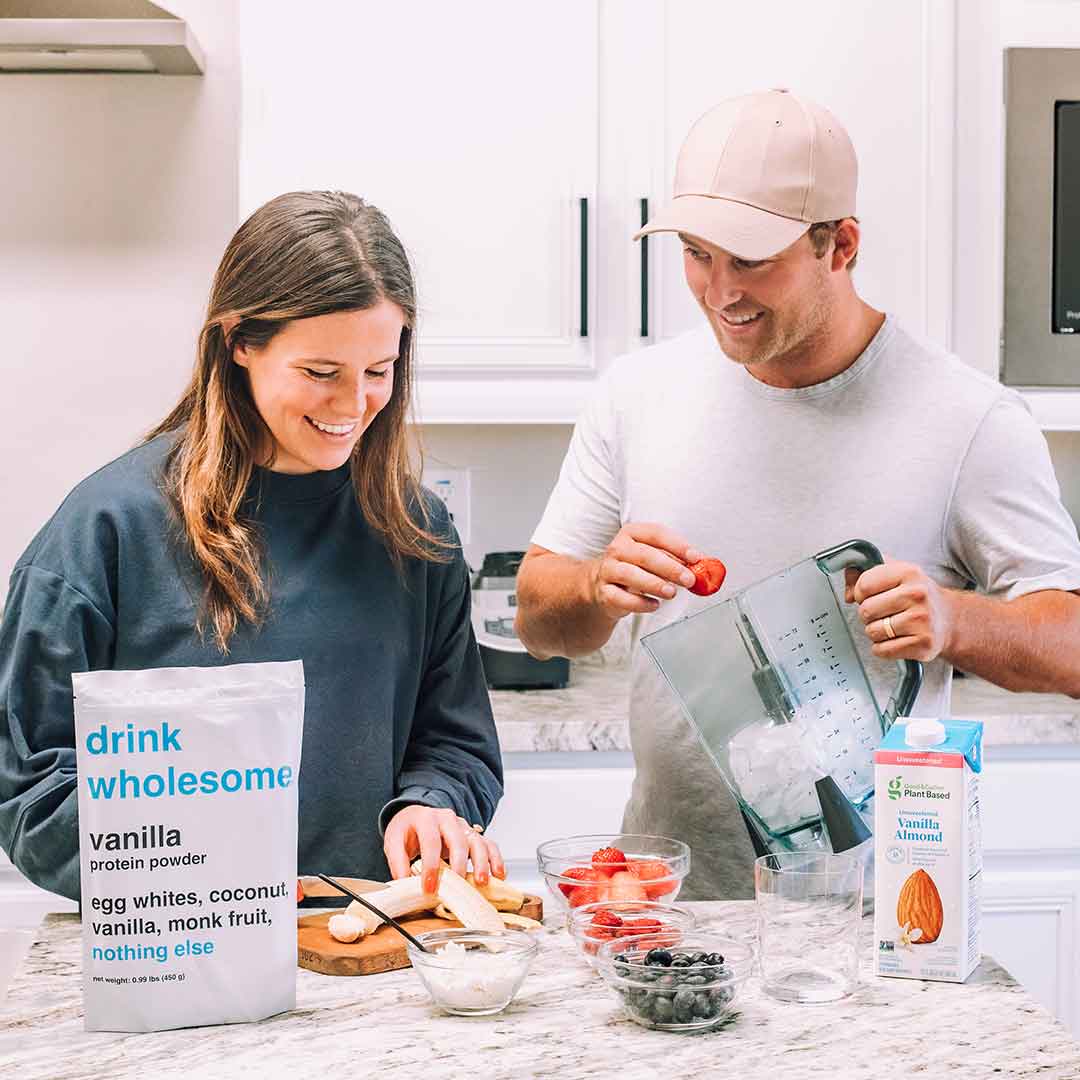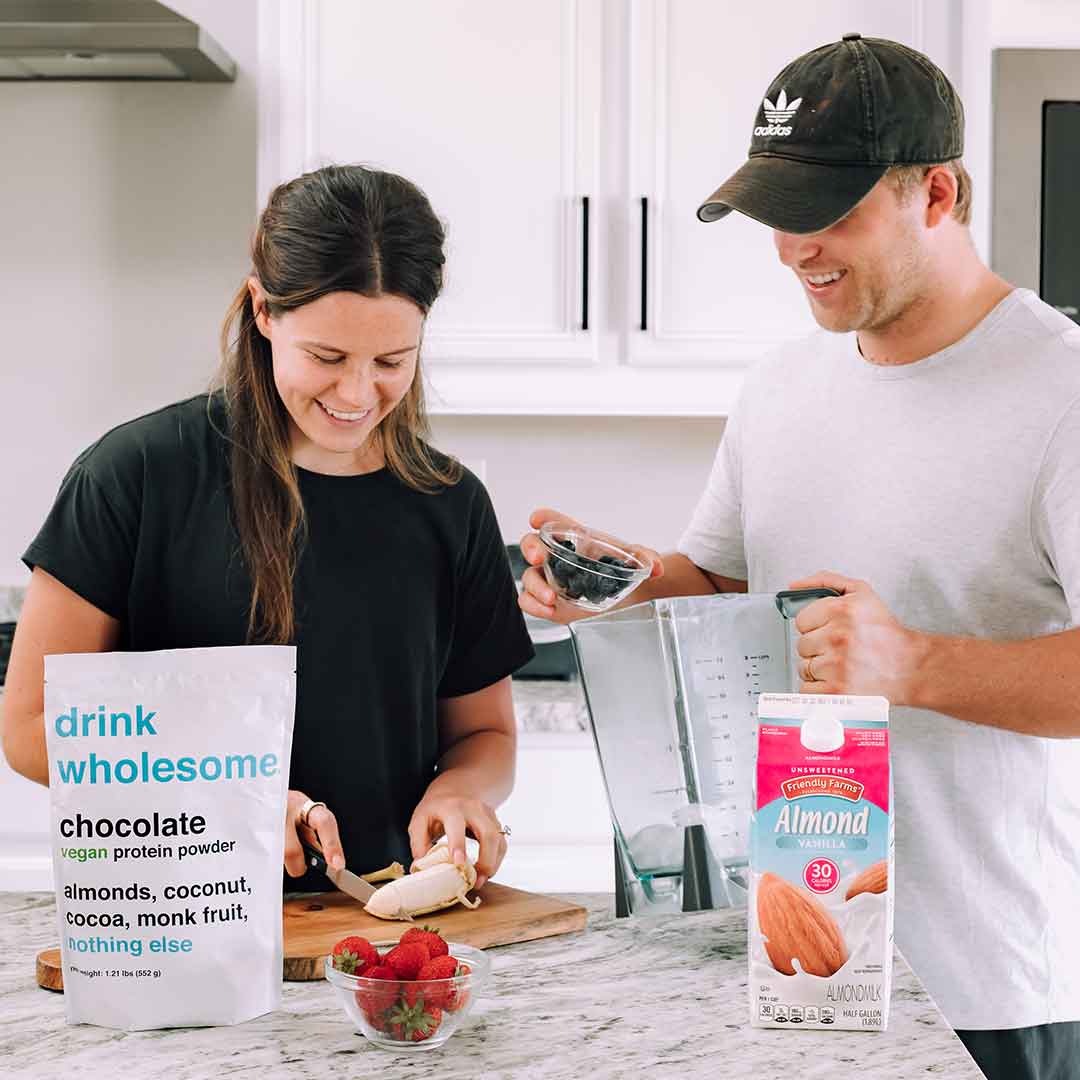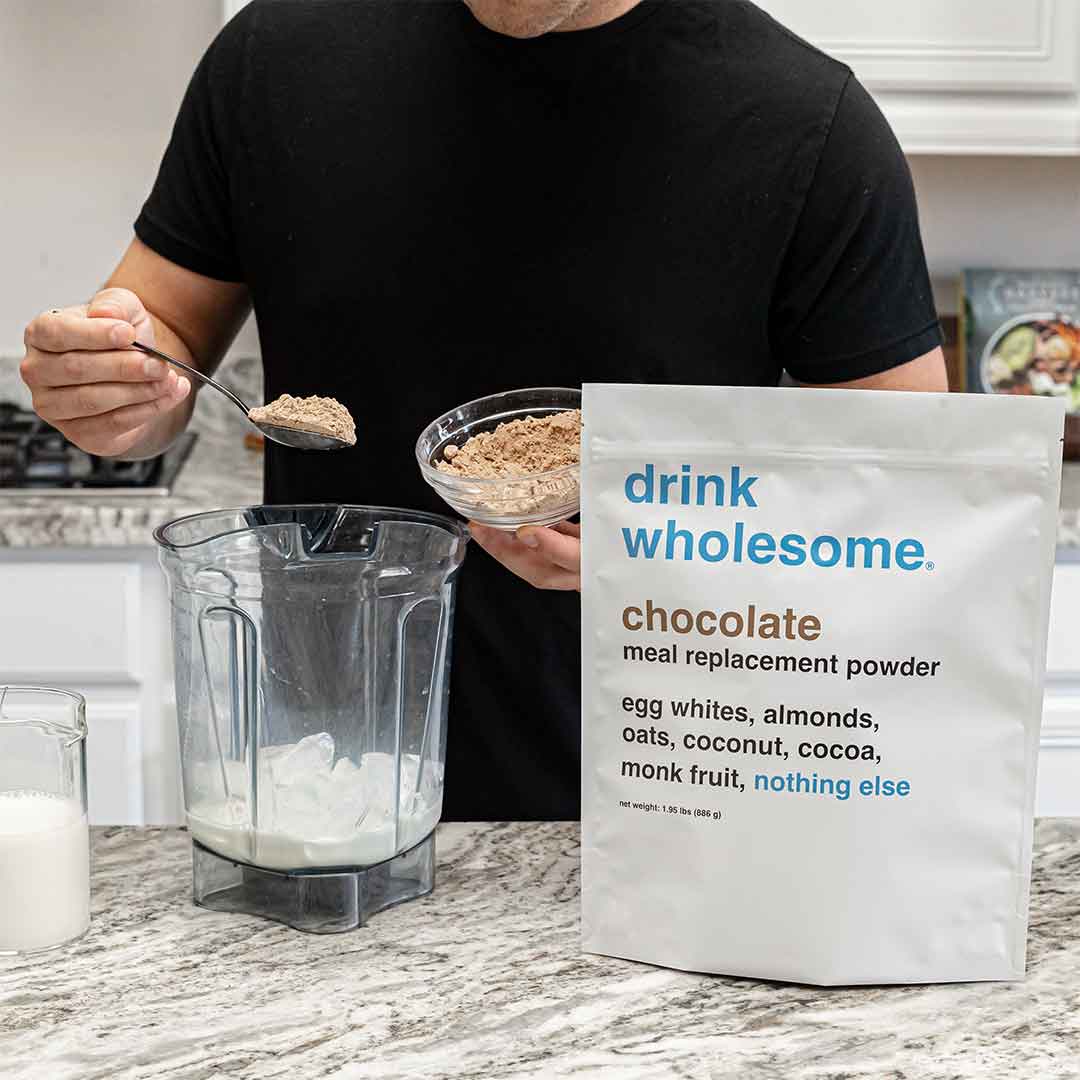Meal replacement vs protein shake.
The main difference between protein shakes and meal replacement shakes is the nutrition profile. Protein shakes tend to be high in protein, and low in everything else. This is because they are usually made with protein concentrates or isolates, foods stripped of everything but the protein. Meal replacement shakes, on the other hand, tend to have a more balanced nutrition profile. In other words, because they are intended to replace the nutritional value of a meal, they usually have fats, carbohydrates, and other nutrients in addition to protein.
Many people use protein supplements and meal replacements to help manage their weight, so let us start there. Believe it or not, both protein shakes and meal replacement shakes can help you gain and lose weight. This probably sounds confusing, so allow me to explain.
Losing weight is all about achieving and maintaining a calorie deficit – eating fewer calories than you burn. Gaining weight is all about achieving and maintaining a calorie surplus – eating more calories than you burn. Depending on how they are used, protein supplements and meal replacements can help you achieve a calorie deficit or a calorie surplus. Drinking a protein shake or a meal replacement shake in between meals, for example, will add calories to your diet and help you achieve a calorie surplus. Meal replacements have more calories than protein supplements, and are probably better suited for this goal.
Replacing a meal or part of a meal with a protein shake or a meal replacement shake, on the contrary, can help you achieve a calorie deficit. The reason why this works has to do with hunger. Hunger is a powerful sensation, and depriving your body of calories it thinks it needs is uncomfortable. Your body does not like to be uncomfortable, and it will not shut up until you give it what it wants. This is the main reason why losing weight is so hard – even the most stubborn person can only ignore hunger for so long, and will eventually eat (often more than he or she needs to).
The secret to weight loss is therefore to prevent hunger. In order to do so while maintaining a calorie deficit, you have to eat the right foods. Some foods are satiating, meaning they fill you up. Others are not. The trick is to eat more of the former, and less of the latter. High protein foods are among the most satiating foods and can help with weight loss. They keep you feeling full for longer, which helps prevent cravings and overeating. Protein supplements and high protein meal replacements are therefore a great way to increase the percentage of your calories that come from high protein and help you lose weight. Protein supplements may be better suited for this goal, but a high protein meal replacement can also do the trick. Our meal replacements, for instance, contain a whopping 30g protein per serving, which makes them a powerful weight loss food.


